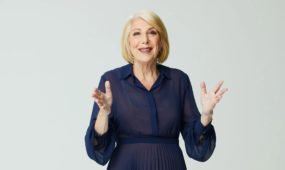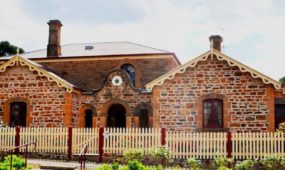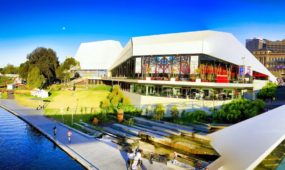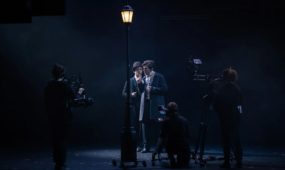Don’t miss these Adelaide Writers’ Week sessions
Arts
From politics to literature, there’s plenty to look forward to – and choose between – at this year’s Adelaide Writers’ Week, writes our regular Diary of a Bookseller columnist. She shares her five must-see sessions.

Sign up to receive notifications about new stories in this category.
Thank you for subscribing to story notifications.
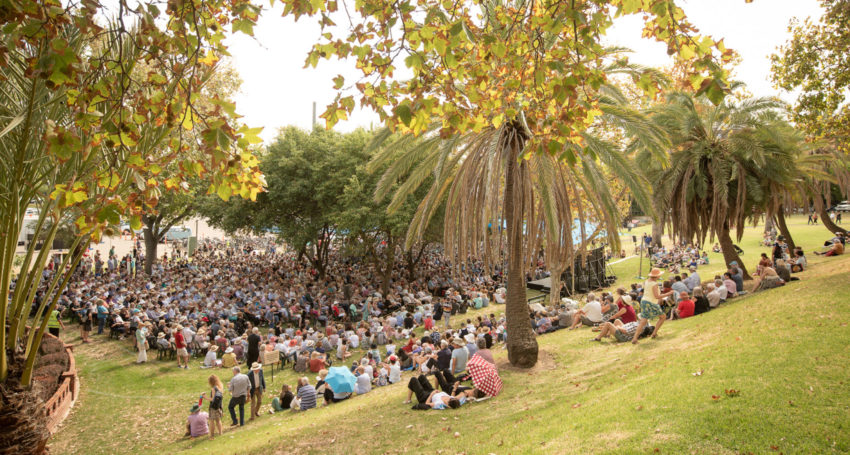
Depending on how you count it, it’s the second year of an Adelaide Writers’ Week in COVID times. The second Writers’ Week where international guests will beam in on big on-stage screens, to speak to audiences perched on chairs or sprawled on the lawns of the Pioneer Women’s Memorial Garden.
We’re used to it now, this new way of doing things. And we’re lucky that our festival has continued to run these past few unpredictable years, with minimal adaptations.
This year, the wearing of masks will be “strongly encouraged” in the garden, and you’ll need to remember to bring proof of double vaccination to show at the entrance.
This year is also notable as the final Writers’ Week of outgoing director Jo Dyer, whose festivals have represented a shift towards more non-fiction programming, with several sessions reflecting burning issues in news and politics.
So it’s not surprising, perhaps, that Dyer is running for federal parliament – as an independent, for the seat of Boothby. She’s also chairing two events in this year’s program that seem especially relevant to this run-up to a federal election: a session with former PMs Kevin Rudd and Malcolm Turnbull, speaking as critics of the Morrison Government, and a conversation with Jess Hill and Grace Tame on #MeToo and the fight for women’s justice.
And, of course, there’s still plenty in the program for lovers of literature… from international titans like Colm Tóibín, to local traditions celebrating new talent, like the awarding of the MUD Literary Club’s Prize for Best First Novel, in an event with Hannah Kent, Christos Tsiolkas and Thomas Keneally.
Here are five of the events I’m most looking forward to. And yes, I’ll have to choose between the first two on my list, which run at the same time. The big question: politics or literature?
Deadly Quiet City – Murong Xuecun
Saturday, March 5, 1.15pm, East Stage
Nothing is more topical, perhaps, than the subject of celebrated Chinese author Murong Xuecun’s Deadly Quiet City, which takes us all the way back to a recent historical moment that continues to shape all our lives: January 2020, when Wuhan was placed in total lockdown in response to a mysterious new virus. Xuecun spent a month in Wuhan recording the stories of its residents, including an exhausted doctor and a citizen journalist, before threatening phone calls forced him to flee, first to a remote province to finish writing, then to London. Clive Hamilton, who edited the book (which is not officially published until March 11, but will be available at Adelaide Writers’ Week, will be interviewing Xuecun, live on stage. It promises to be a fascinating account, not just of the early days of COVID, but of how the Chinese Government handled it – and also of his tumultuous publication journey.
Comrades in Words – Christos Tsiolkas and Charlotte Wood
Saturday, March 5, 1.15pm, West Stage

Charlotte Wood. Photo: Chris Chen
Lovers of literature will be drawn to what looks like a very special session, teaming two of Australia’s most-loved and accomplished writers, talking about their craft. Christos Tsiolkas and Charlotte Wood will draw on their latest books to discuss how they function as artists, the challenges of a creative life and how they lived through the surreal ride of the pandemic. Tsiolkas’s latest book is 7½, a metafictional novel narrated by a writer, cocooned in the natural beauty of a coastal house, who determines not to write about politics, sexuality, race, gender, history – but, in an increasingly ugly world, to write about beauty. Wood’s study of creativity, The Luminous Solution, is an absolutely terrific look at writing, creativity and pushing ourselves beyond our comfort zones to produce art. Writers and readers alike will get a lot from this session.
The Death of Dr Duncan – Tim Reeves
Wednesday, March 9, East Stage, 5pm
It’s 50 years since the infamous drowning of law academic Dr George Duncan in the River Torrens, a crime and outrage that triggered a police cover-up, a Scotland Yard investigation and pioneering gay law reform. Eventually, two vice squad members were tried and acquitted of Duncan’s manslaughter. But public pressure over the verdict led to bipartisan support for Don Dunstan’s government to decriminalise homosexuality, paving the way for similar laws around Australia. Renowned journalist David Marr will interview Tim Reeves, author of a definitive new account of the still-unsolved case, which is also the subject of a new Adelaide Festival show, Watershed: The Death of Dr Duncan.
Empire of Pain – Patrick Radden Keefe
Saturday, March 5, 10.45am, West Stage

Patrick Radden Keefe. Photo: Philip Montgomery
Patrick Radden Keefe won the Orwell Prize for Say Nothing, his extraordinary book about the abduction of a suspected informant by the IRA, which expertly illuminated a very personal story that reflected Northern Ireland’s complex politics. In Empire of Pain, he turns his talents to tackling the opioid epidemic, again through the lens of a very particular story that reflects a larger societal story: the rise and fall of the Sackler family, whose company Purdue Pharma invented and peddled OxyContin. The Guardian called it “a work of non-fiction that has the dramatic scope and moral power of a Victorian novel. It’s about corruption that is so profitable no one wants to see it and denial so embedded it’s almost hereditary.” It’s a damning account not just of this one family or drug, but of American culture.
The Right to Sex – Amia Srinivasan
Tuesday, March 8, East Stage, 5pm
Jia Tolentino (Trick Mirror) calls Amia Srinivasan “an unparalleled and extraordinary writer”. Lisa Taddeo (Three Women) praises her “stunning intellect”. And my bookselling colleague Megan – who I trust as much, if not more – absolutely loved Srinivasan’s The Right to Sex. Srinivasan believes that to grasp sex in all its complexity – its deep ambivalences, its relationship to gender, class, race and power – we need to consider more than just consent. “A truly inclusionary politics,” she says, “is an uncomfortable, unsafe politics.” Her collection re-centres the second-wave feminist idea of the personal as political, asking us to interrogate what it is that shapes our expectations and desires. Live from Oxford, she’ll talk to feminist historian Clare Wright about these ideas.
Adelaide Writers’ Week will be in the Pioneer Women’s Memorial Garden from March 5-10. The full program is online.
Jump to next article
